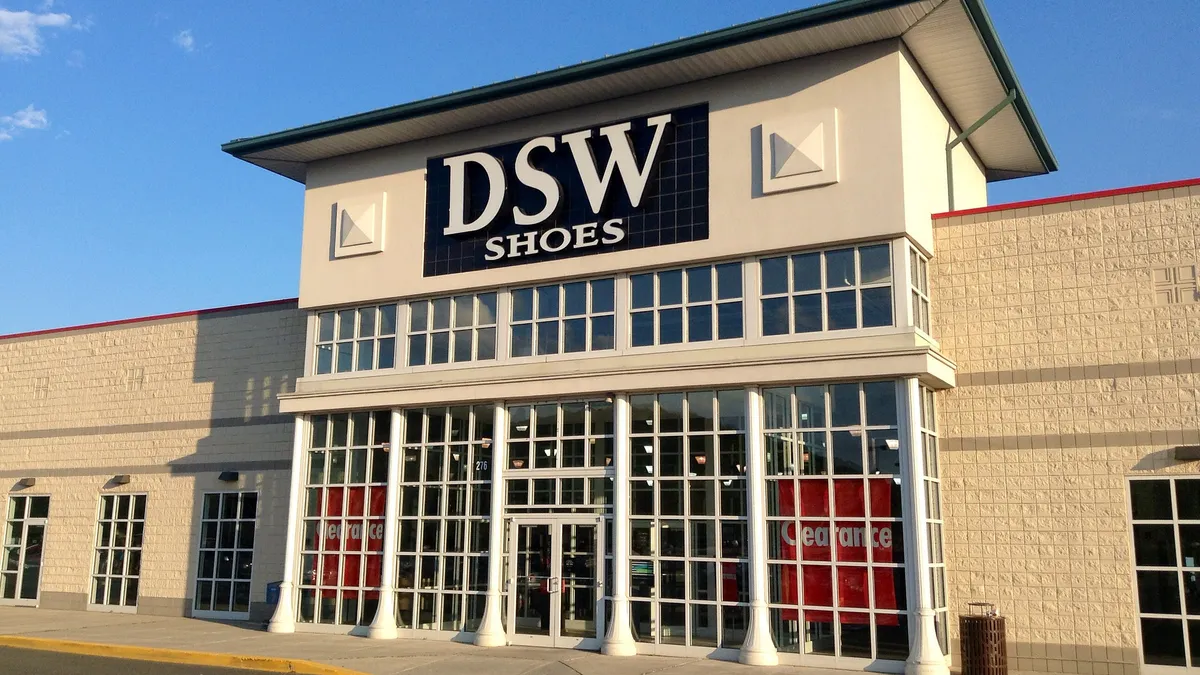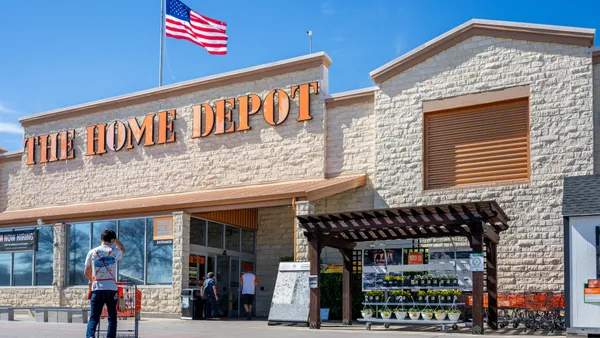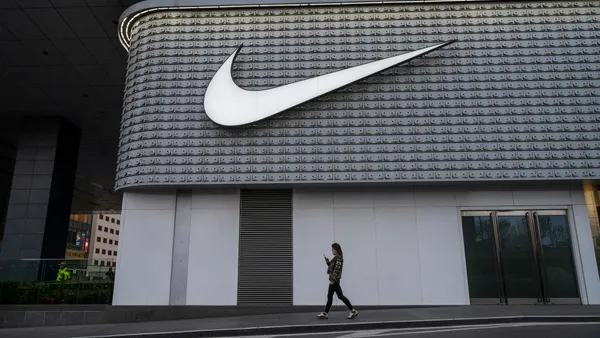Dive Brief:
- Footwear retailer Designer Brands announced on Friday a long-term plan that includes leveraging its focus on customers, building brands and optimizing speed to drive growth, according to a company press release.
- The conglomerate, which owns DSW Designer Shoe Warehouse and The Shoe Company, delivered a five-year financial strategy with goals of reaching $4 billion in revenue by fiscal 2026.
- Designer Brands also plans to double its sales of owned brands, mostly through its DTC channels.
Dive Insight:
In 2020, Designer Brands cut over 1,000 positions and said it was considering the closure of up to 80 stores.
Two years later and the footwear company has its sights set on landing $4 billion in revenue, a gross profit margin of 35% and the generation of $1 billion of cash from operating activities, all by fiscal 2026.
"At Designer Brands, we have truly taken control of our destiny as we have transformed into a brand builder, marrying our world-class design and sourcing capabilities to our industry leading direct-to-consumer infrastructure," CEO Roger Rawlins said in a statement.
The company, which currently derives 19% of its total revenue from its private labels, wants to boost that figure to nearly one-third. A focus on owned labels is expected to drive its operating margin higher over the long term.
A number of other retailers have also developed their private label offerings for the same reason— owned brands translate into better sales margins. Target is perhaps one of the most well-known companies for producing dynamic private label products and now currently sports a roster of 48 private labels across apparel, home, consumer goods and grocery categories, 10 of which are currently worth more than a billion dollars.
Macy's last month hired Emily Erusha-Hilleque, a Target private label veteran, to focus on its owned-brand strategy. The department store runs 24 private labels across categories, representing up to 20% of its volume.
"We are prioritizing our private brand portfolio to grow our overall business and capture market share by offering assortments that build style credibility at compelling prices," Macy's Chief Merchandising Officer Nata Dvir said.
In a similar manner, Designer Brands sees private labels as an opportunity to push sales forward, with Rawlins describing them as "the key driver of growth over the next five years."
In an earnings call with analysts in March, Rawlins pointed to private labels as a part of the success in the quarter, saying that the total sales of the company's owned brands grew 69% in the fourth quarter year over year, and sales of private labels through its DTC channels (via DSW and its Vince Camuto website) grew by 98% year over year.













